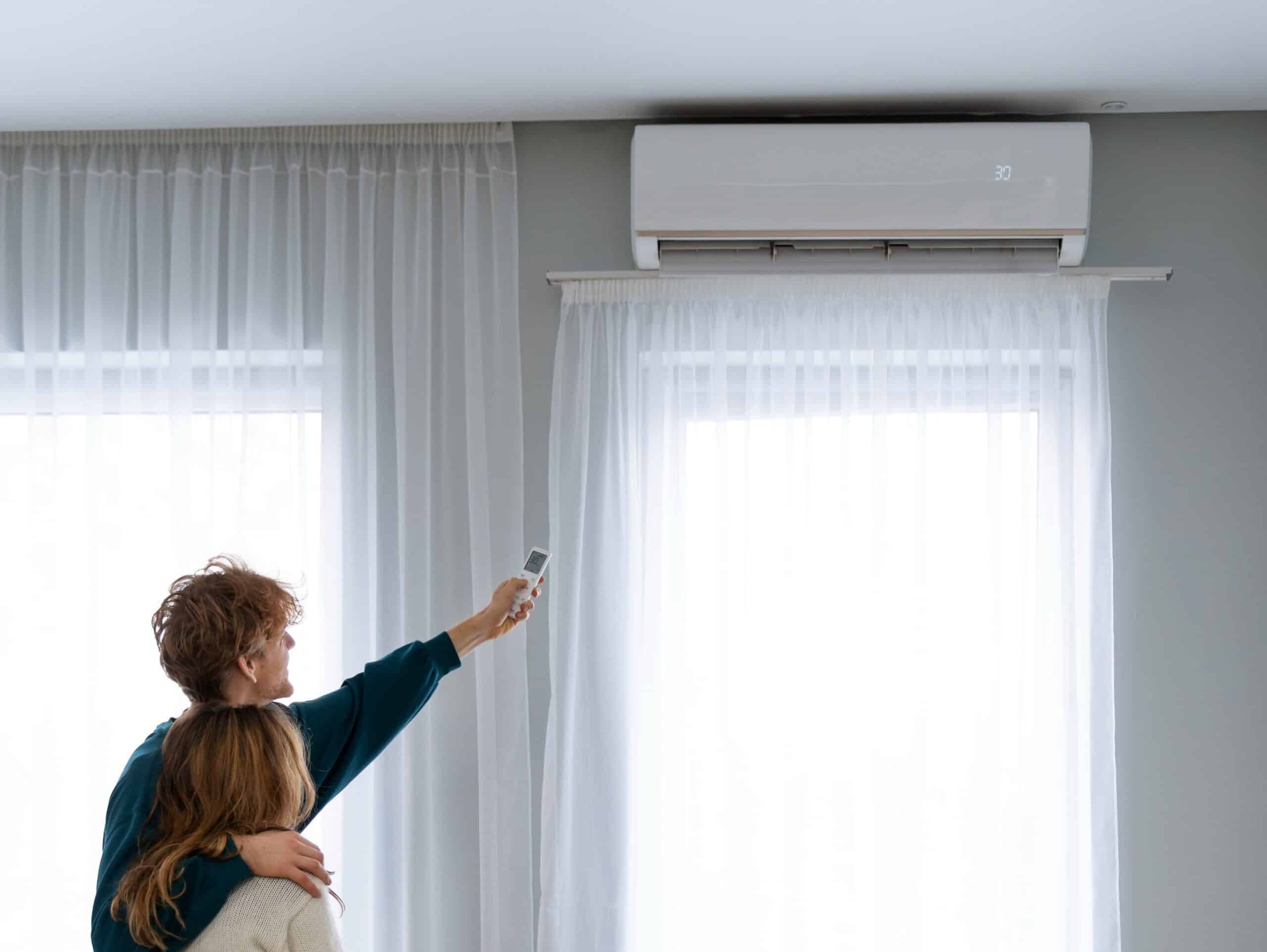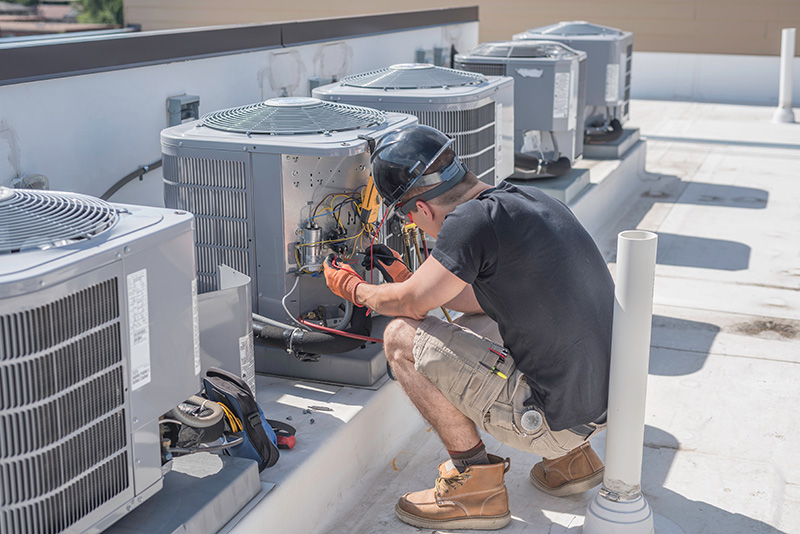Reliable Team at DMAKS HVAC for All Your HVAC Needs.
Reliable Team at DMAKS HVAC for All Your HVAC Needs.
Blog Article
Energy-Efficient A/c Solutions to Minimize Energy Expenses
As power expenses remain to rise, the value of energy-efficient HVAC systems becomes progressively apparent. These systems not only guarantee substantial financial savings on utility costs but likewise add to an extra lasting future by lessening energy consumption. With various alternatives readily available, consisting of geothermal heatpump and ductless mini-splits, property proprietors encounter a wide variety of options that can enhance convenience and air high quality. Nevertheless, understanding the key attributes and maintenance requirements is important to taking full advantage of these benefits. What variables should be focused on when selecting the appropriate system for your requirements?
Advantages of Energy-Efficient A/c Equipments
Energy-efficient a/c systems offer many benefits that prolong beyond mere price financial savings. One considerable advantage is the reduced environmental influence. By consuming much less power, these systems add to reduce greenhouse gas discharges, aiding to fight environment change and promote sustainability. This lines up with raising societal demands for green practices in domestic and business setups.
Furthermore, energy-efficient cooling and heating systems typically supply boosted convenience degrees. Most of these systems include innovative technology that permits better temperature level control and improved air top quality (DMAKS HVAC). This leads to a healthier indoor environment, which is particularly important for individuals with allergies or respiratory issues
Furthermore, buying energy-efficient heating and cooling systems can boost residential or commercial property worth. As more consumers prioritize power efficiency, homes and buildings equipped with these systems might bring in higher bids in the realty market.
Kinds of Energy-Efficient Cooling And Heating Options
Just how can house owners and services choose the most ideal energy-efficient a/c choices for their needs? The market supplies a range of energy-efficient heating and cooling systems, each designed to boost comfort while lessening energy consumption.
One alternative is the variable refrigerant circulation (VRF) system, which effectively controls the temperature level in several areas within a building. This system adapts its cooling agent flow to match the wanted temperature, leading to considerable energy financial savings.
One more preferred option is geothermal heat pumps, which use the earth's steady temperature to warm and awesome rooms. By transferring warm to and from the ground, these systems demonstrate excellent efficiency, especially in moderate climates.
In addition, ductless mini-split systems offer an energy-efficient choice for homes lacking ductwork. These systems enable for zone-specific heating & cooling, lowering energy waste in empty areas.
Finally, high-efficiency furnaces and ac system, with advanced SEER and AFUE scores, supply reputable climate control while taking in less power than conventional designs. By assessing these options, house owners and organizations can select a HVAC system customized to their specific requirements and energy performance objectives.
Key Functions to Take Into Consideration

Next, check out the kind of compressor made use of in the system. DMAKS HVAC. Variable-speed compressors visit here can change their output to match the heating or cooling down demand, bring about improved convenience and energy cost savings contrasted to single-speed designs. In addition, search for systems outfitted with wise thermostats that supply programmable settings and remote gain access to, allowing for much better control over power consumption
Another critical attribute is the system's air filtering capacity. High-efficiency filters can improve interior air This Site top quality and lower power intake by making certain the system runs successfully. In addition, take into consideration the kind of cooling agent utilized; contemporary systems typically utilize environment-friendly cooling agents that have a lower environmental impact.
Finally, guarantee that the system works with zoning technology, which permits for personalized temperature control in different locations of your home, improving comfort while minimizing power usage.
Tips for Choosing the Right System


Next, consider energy performance rankings, especially the Seasonal Energy Efficiency Proportion (SEER) for cooling down systems and the Annual Gas Application Effectiveness (AFUE) for furnace. Higher ratings visit their website suggest better performance, which can cause significant savings on energy expenses with time.
In addition, evaluate the kind of cooling and heating system that ideal suits your way of living and budget. Options consist of air conditioning, ductless mini-splits, and heatpump, each with its very own collection of advantages and downsides.
Do not neglect the relevance of correct installment and sizing; an incorrectly sized system can lead to ineffectiveness and enhanced wear. Lastly, speak with a professional HVAC professional to obtain professional referrals tailored to your home's special needs. This detailed method will ensure that you pick an energy-efficient HVAC system that satisfies your needs and budget plan effectively.
Maintenance for Ideal Performance
As soon as the right a/c system remains in area, recurring upkeep becomes key to making sure ideal efficiency and longevity. A properly maintained system operates extra properly, resulting in reduced power usage and decreased energy expenses. Normal inspections and tune-ups ought to be arranged at the very least two times a year-- when before the air conditioning season and when before the heating period.

Property owners need to additionally be alert about checking their heating and cooling system's efficiency. Uncommon sounds, changing temperatures, or raised power bills can indicate underlying problems that call for instant interest. By attending to these concerns without delay, homeowners can stop expensive fixings and extend the life-span of their systems.
Purchasing an upkeep strategy with a certified professional not just boosts efficiency yet additionally provides satisfaction, understanding that the system is running at its ideal. DMAKS HVAC. Regular upkeep is consequently essential for sustaining power efficiency and decreasing total operational expenses
Final Thought
To conclude, energy-efficient a/c systems offer a practical option for decreasing utility bills while boosting convenience and air quality. By integrating sophisticated technologies and alternatives such as geothermal heat pumps and ductless mini-splits, building proprietors can attain significant energy cost savings and contribute to ecological sustainability. Mindful consideration of system features and continuous maintenance additionally makes sure optimal performance, making energy-efficient systems a sensible investment for both financial and ecological advantages.
Report this page